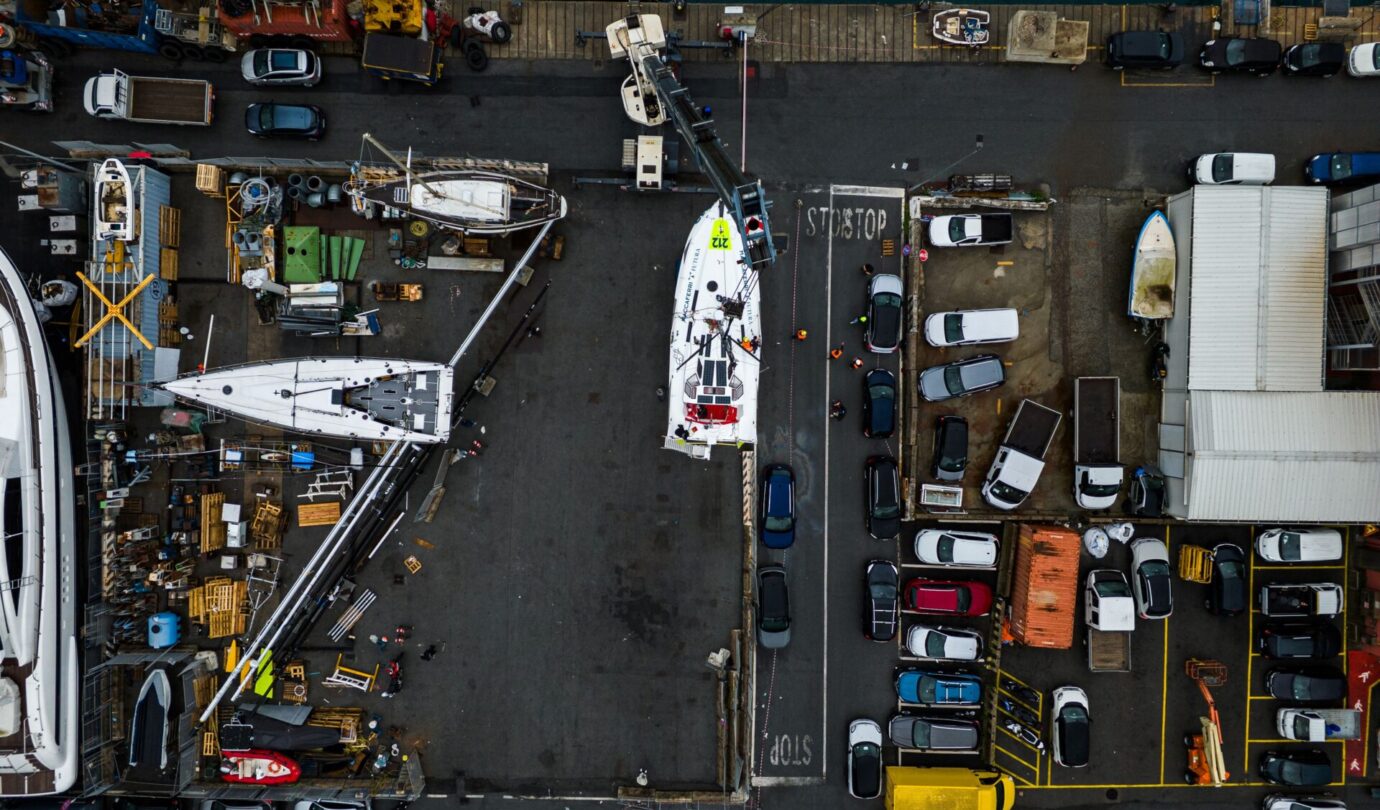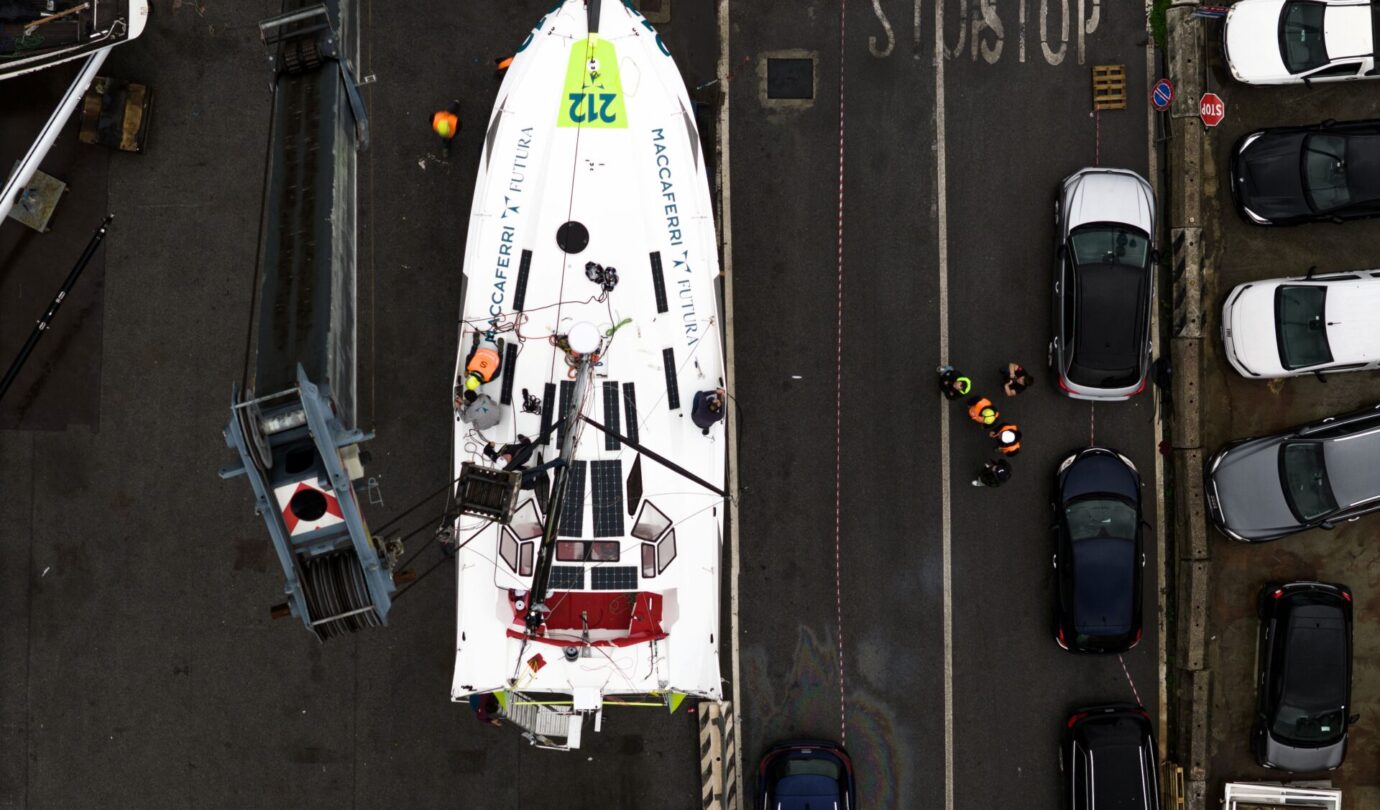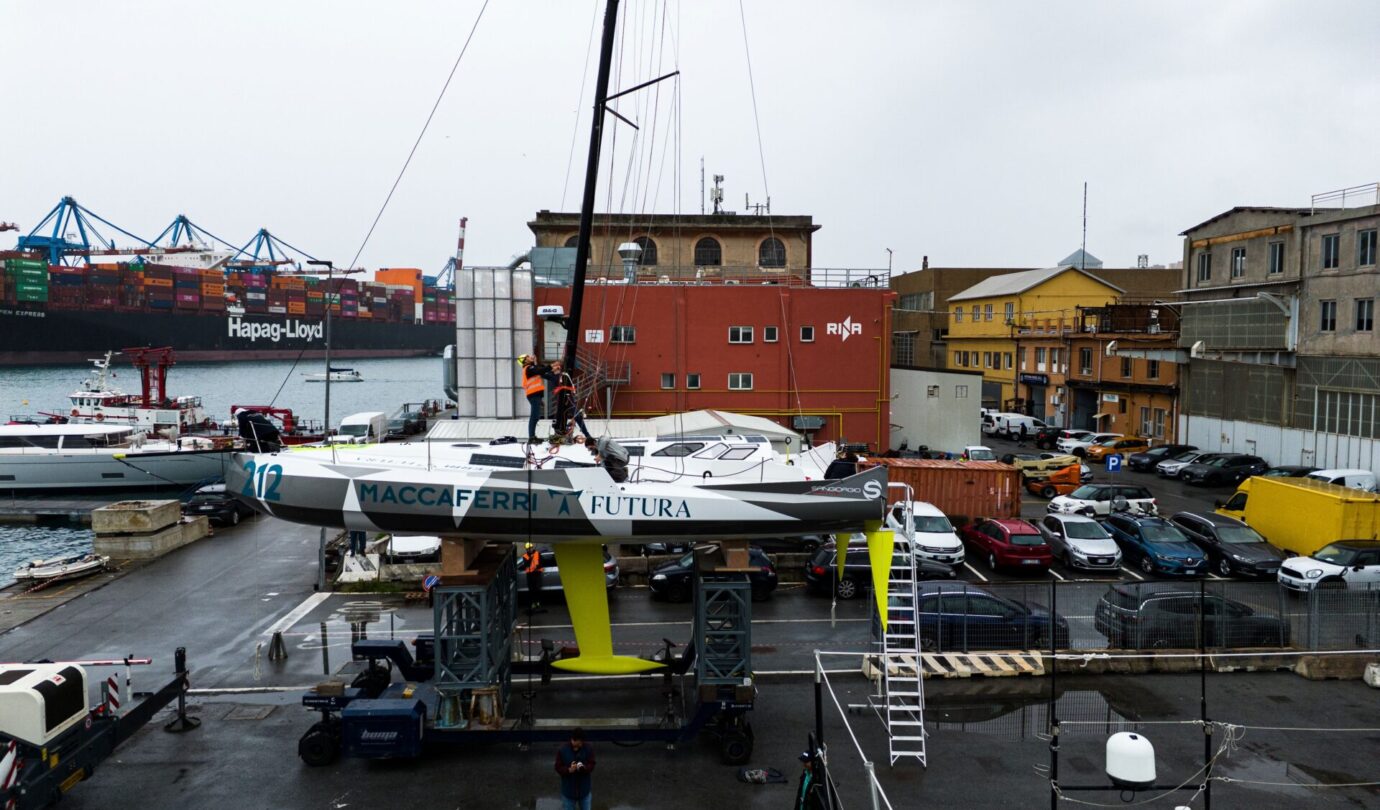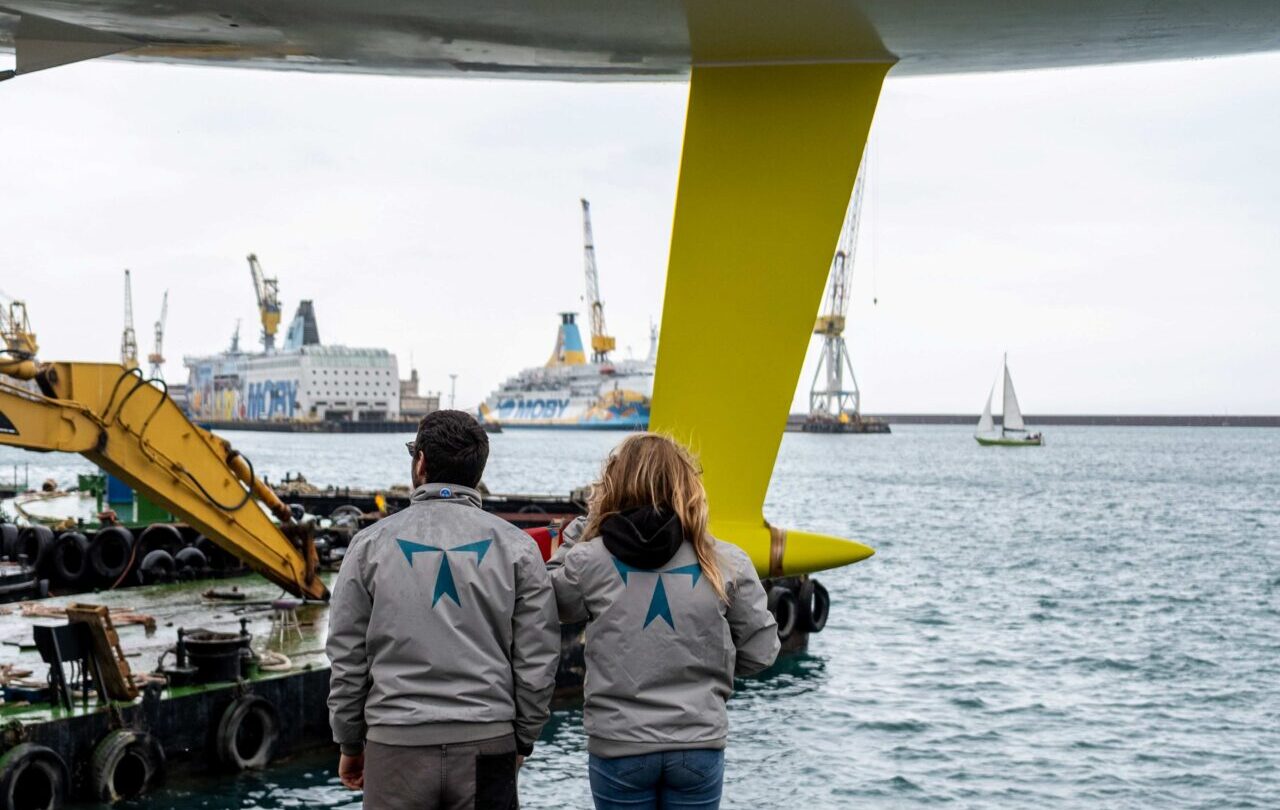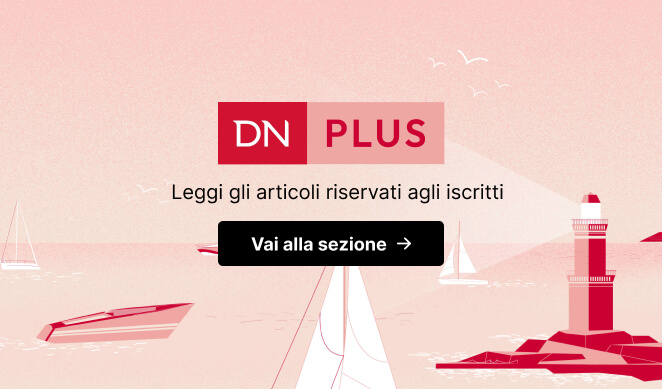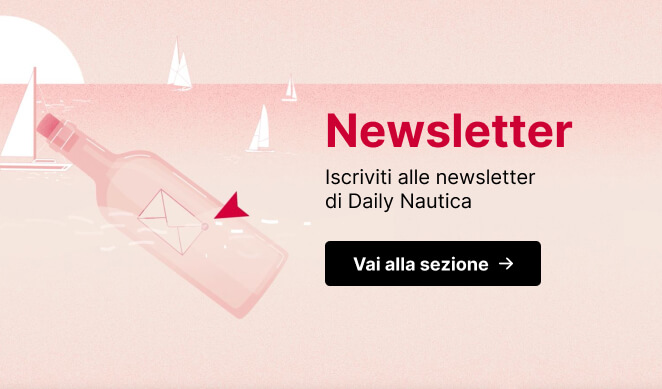Luca Rosetti talks to DN: “We have begun working on the Class 40 project with Maccaferri Futura”
Luca Rosetti talks to the readers of Daily Nautica during the official presentation of the Class 40 Maccaferri Futura project in Genova
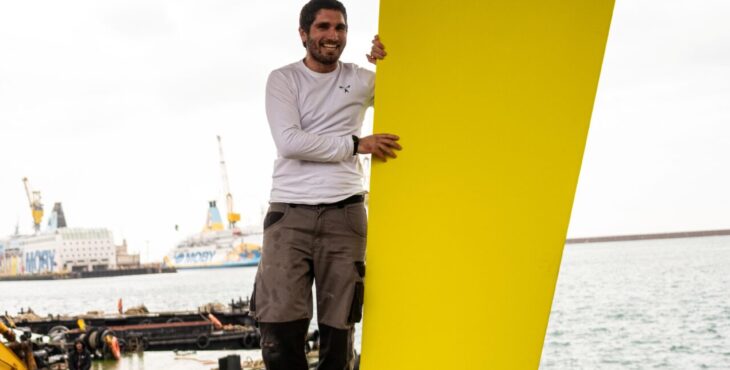
Luca Rosetti talks to the readers of Daily Nautica during the official presentation of the Class 40 Maccaferri Futura project in Genova
Luca Rosetti’s calm and deliberate manner should not fool you. Behind this calm façade is an athlete looking for the right words to describe his determination and very ambitious objectives. A sailor and racer since he was little, sailing with his Optimist and Laser, he fell in love with ocean sailing with a Mini 6.50 in the Adriatic, and since then has set sail for further and further horizons. His determined approach for reaching his objectives led to his winning the Mini Transat proto class in 2023, and since then he has made a name for himself in ocean sailing. The next logical step was the Class 40, where Luca gained experience by working on different vessels, including Alberto Bona’s IBSA which he raced in during the Transat Quebec Saint-Malo.
On Thursday 8 May, the 30-year-old from Romagna spoke about his “very own” project to the press, in Class 40 which, in addition to its competitive side, is also important for social welfare. Maccaferri Futura, is not just new boat, a Musa 40 designed by Gianluca Guelfi and built by Sangiorgio Marine in Genova, but it aims to become a scientific platform to monitor the health of the ocean and the human body. A project that is in line with the values of the main sponsor, Maccaferri, for over 140 years an international business in research and the implementation of advanced solutions for the construction, geotechnical engineering and environmental markets.
Daily Nautica met with Luca Rosetti for a long chat, during which the navigator shared his thoughts openly and generously with our readers.
Luca, your partnership with Maccaferri is not new, but what is it that caused you to come together again for the current Class 40 project?
Yes, you are right, Maccaferri and I began working together in 2019, ten months after my first Mini Transat, for which I already had a project installed and they then came back on board in 2023 when I won the Mini Transat. At that time we worked well together and the win was a perfect opportunity to keep working together. We sat down at a table and spoke about the new idea we had thought of: the Futura project. A project that not only talks about sports, but that would use the boat as a platform for sharing messages and doing other activities. The boat as a vehicle, not just for communication, but as a means, literally, that, while sailing around can carry out activities on the side, like collect environmental data.
Talk to us about your new boat, the Maccaferri Futura?
I wanted a Musa for a number of reasons. Firstly because it is one of the most competitive Class 40s available on the market. Ambrogio (Beccaria – editor’s note) won with the first vessel, but it wasn’t just him, Alberto Riva and Andrea Fornaro did very well with another two Musas. It wasn’t therefore, a boat made just for Ambrogio, with his characteristics and his talent that would sail well, but it was versatile. And then, another reason for my choosing this boat is that in Italy, even though there are many things we still don’t know how to do, we do have plenty of skill in boating. As an Italian who lives in France in order to do what i do, I felt the desire and need to get as much as possible from Italy in terms technical skill and efficiency. When you get a sponsor and start working on a project like this, the idea is to do it as competitively as possible. Maccaferri and I evaluated the alternatives, because at that time the Max 6 had just come out, and the new Lombard and Raison were about to be released, there were boats on the market with different characteristics that were interesting, but we decided to trust in the evolution of Gianluca’s design (editor’s note: Guelfi, Musa designer).
What is this evolution? Did you decide or did the designer?
I decided some things, some were decided together with Gianluca, and others were decided directly by him based on feedback he had received from Ambrogio Beccaria and Alberto Riva. We tried to create a more all round boat compared to the first Musa, which went very well in certain conditions. Clearly, you can’t make the same boat go faster, but you can decide where to put the speed, and we tried to make this evolution more versatile.
How long will the Maccaferri Futura project last, and what are your objectives in this class?
It is a three-year project and we are already in the second, seeing as the first 12 month were spent building the boat. The 2025 sporting calendar has the Paprec 600 Saint Tropez scheduled for mid-May in the Mediterranean, followed by a transfer to Breton to participate in the Les-Sables-Les Acores-Les Sables at the end of June, then the Rolex Fastnet Race at the end of July and, finally, at the end of October, the key event, the Transat Cafe l’Or Normandie-Le Havre (formerly Transat Jacques Vabre). The boat will then remain in the Caribbean for the winter while waiting for the RORC 600 in February, before coming back to Europe for the Niji Retour race. At that point, we will see which races to participate in, because the aim for 2026 is the Route du Rhum in November. And then, who knows? Even though, for now I can say that, seeing the investment both financial and in time, energy and human resources, both sides are not truly interested in stopping after the Route du Rhum.
Who will you sail with for the next two years? Do you prefer to sail in solitary or with a crew?
Matteo Sericano will be my co-skipper, because last year we worked well together on the Class 40 Tyrolit, and grew well together. Then, for the other crewed races I will have my boat captain, Yael Poupon, a competitor during the Mini Transat who is very good, and who I will do at least one double race a year with, maybe the Parec 600. For me, the boat captain is a fundamental figure: you entrust him with the boat and therefore with yourself, meaning that if the boat is well prepared, then you have less trouble out on the water. So, it is important that they sail and know what the needs and problems are, so that you can work together to find solutions for both performance and efficiency and life on board.
Over the past few years, the combination of the words “sailing” and “scientific research” have become linked, and your project also highlights this: can you explain to us why you wanted to integrate this aspect? Does your personal fear for the fate of the world push you or is it social welfare?
Maybe a bit is personal fear. But I also feel the need that when things are said, they need to be done in a certain way. When we talk about projects connected to environmental research, now that I am trying to do one on my own, I realise even more about how much, on the one hand, a lot of it is greenwashing, and, on the other, it is truly hard to do them. Scientific partners have very precise and defined demands and standards, and it is not always easy to do it all. Thanks to Maccaferri we are taking on a real challenge, meaning that we have to partners working in the project who are working solely on this aspect, because that is what we need, and nobody has done that up to now, to write collection protocols that are repeatable, so that we can effectively collect certified and certifiable data. The problem is that until now we have talked a lot about ocean collection, but there really is nothing, no protocols or literature in this regard. We are now working with the University of Milano Bicocca to understand whether the data that we collect will be useful and reliable, meaning whether or not they will respect a series of variable parameters so we can call them “scientific data”, or whether they should be called “educational data”. From what i have understood this is the problem: one is different from the other and the difference is either or not certain protocol parameters were respected or not.
Boris Hermann’s Malizia team, for example, is one of those who collected true scientific data during The Ocean Race, which were then published in specialist papers. In addition to writing these protocols, we will also collect data, from the air and water during sailing, as well as through a “sail box”. This is an automated sampler installed on board that will analyse a series of parameters, like water temperature in various positions, salinity, PH and the amount of dissolved CO2. We still do not know whether this data will be educational or scientific, meaning that we need to certify this prototype that the researchers have built and that, if it works, might one day be installed on any pleasure boat, to that we could potentially have an infinite number of “signal buoys.”
What does sailing mean for you?
That is an answer that changes every two or three months. Anyone who goes out to sea like me asks themselves that question, because there are some aspects that mean making sacrifices. In this moment, I have realised that being out in the water is the only time where I feel I am truly living in the present. I live, sometimes too much, looking to the future, always looking for the next challenge, and this isn’t always good, calm, or pleasant. Instead, out on the water I only worry about the present, which is me, the boat and what surrounds us.

